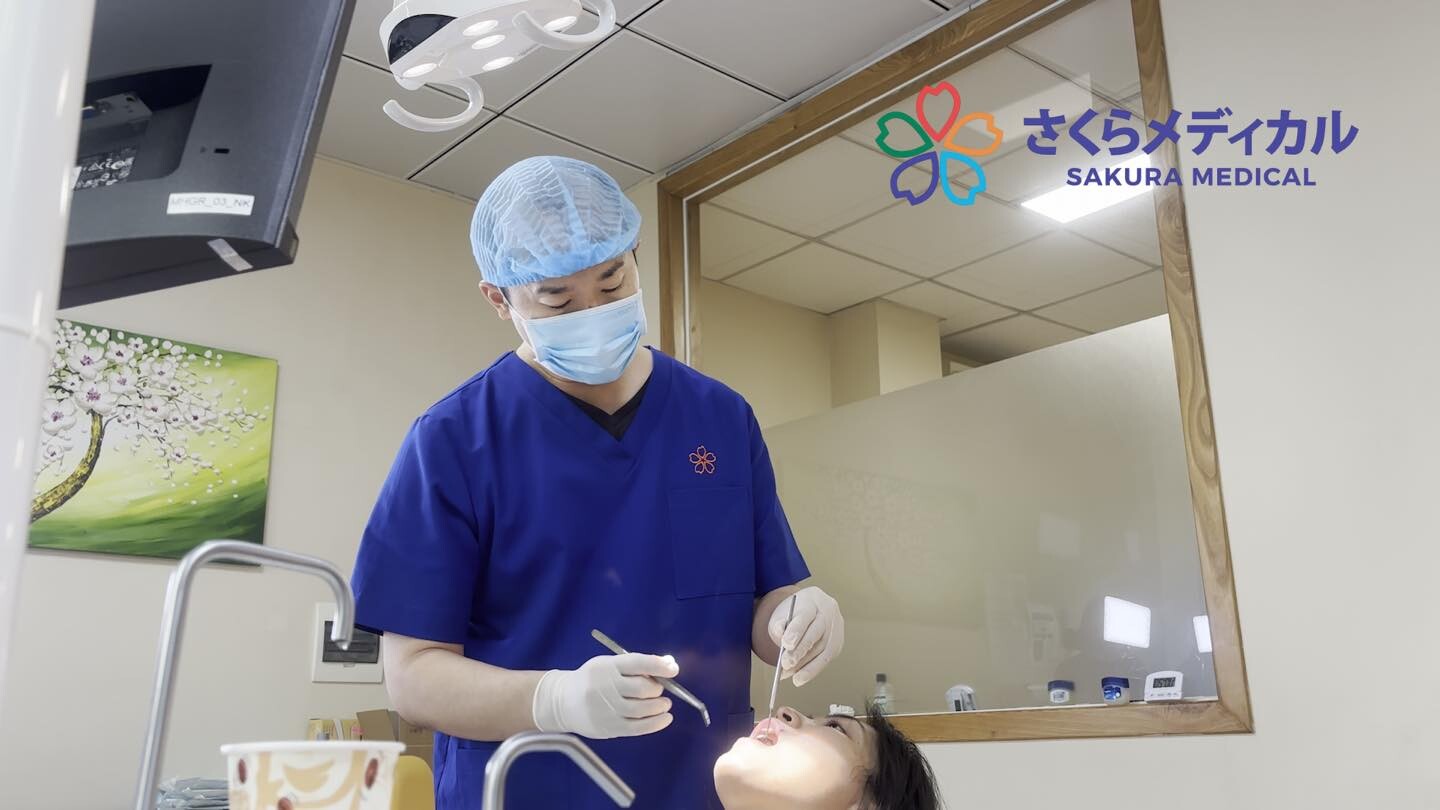Teeth whitening is a method that uses oxidizing agents (usually Hydrogen Peroxide or Carbamide Peroxide) combined with light or laser energy to remove color pigments on the surface and deep inside the enamel. Thanks to that, teeth become whiter, improving aesthetics significantly after just a few treatment sessions.
Unlike scaling or polishing teeth which only cleans plaque on the outside, teeth whitening affects the enamel structure, helping to change the color of teeth from the inside.
Does teeth whitening damage tooth enamel?
This is a question that many customers are interested in. According to dental research, teeth whitening properly, with medicine and technology is safe, does not harm tooth enamel.
Non-abrasive enamel: Bleaching agents work by releasing oxygen to break down color molecules, without eroding or thinning tooth enamel.
High safety when performed at the dentist: Drug concentration, light exposure time and technique are all strictly controlled by the doctor.
Sensitivity may occur but is temporary: After bleaching, some people experience a slight sensitivity, caused by the enamel becoming more sensitive for a short time. This usually goes away after a few days and does not cause permanent damage.
However, if you abuse whitening products of unknown origin, buy medicine online or do it at a less reputable facility, tooth enamel can be eroded, microscopically cracked, demineralized, leading to weakened teeth and increased risk of tooth decay.
When should teeth whitening be done?
Teeth whitening is not always possible. You should consider and consult your doctor in the following situations:
- Teeth become discolored and yellow due to eating habits.
Drink lots of coffee, tea, wine, and carbonated soft drinks.
Smoking.
Teeth discolor with age
As we age, tooth enamel wears away, revealing the dentin, making our teeth darker.
2. Teeth stained by medication (tetracycline antibiotics, high doses of fluoride)
Bleaching can provide some improvement, but the effectiveness depends on the condition.
3. After treatment of dental diseases
If you have tooth decay, gingivitis, or pulpitis, you need to treat it completely before bleaching.
Cases where teeth whitening is not recommended
Women who are pregnant or breastfeeding.
People under 16 years old (tooth enamel is not fully developed).
People who are allergic to bleach.
People with severely sensitive teeth or severe enamel wear.
In these cases, the doctor will recommend other options such as porcelain crowns or veneers instead of whitening.
How to whiten teeth safely?
To have bright white teeth and ensure safety for tooth enamel, you should:
Performed at a reputable dental clinic
The doctor examines and evaluates the oral condition before proceeding.
Use genuine, safety-tested bleach.
Do not abuse
Teeth whitening should only be done 1-2 times/year, depending on eating habits and doctor's instructions.
Teeth care after whitening
Avoid eating dark foods (coffee, tea, coca, soy sauce...) for at least 48 hours after bleaching.
Brush your teeth properly, use toothpaste for sensitive teeth.
Regular check-ups to check enamel and brightness.
Conclude
Teeth whitening does not damage tooth enamel if done correctly and under the supervision of a dentist. This is a safe and effective cosmetic solution to help you regain a bright, confident smile. However, you need to choose a reputable facility and not arbitrarily buy and use whitening products at home.
If you are concerned about your teeth condition, visit a dental clinic for examination and consultation. Each person has a different enamel characteristic, the doctor will help you choose the most suitable and safest method.
Source: https://skr.vn/tay-trang-rang-co-hai-men-khong-khi-nao-nen-lam/





![[Photo] President Luong Cuong receives Speaker of the New Zealand Parliament Gerry Brownlee](https://vphoto.vietnam.vn/thumb/1200x675/vietnam/resource/IMAGE/2025/8/29/7accfe1f5d85485da58b0a61d35dc10f)




















![[Photo] Hanoi is ready to serve the occasion of the 80th National Day Celebration on September 2nd](https://vphoto.vietnam.vn/thumb/1200x675/vietnam/resource/IMAGE/2025/8/29/c838ac82931a4ab9ba58119b5e2c5ffe)






























































Comment (0)